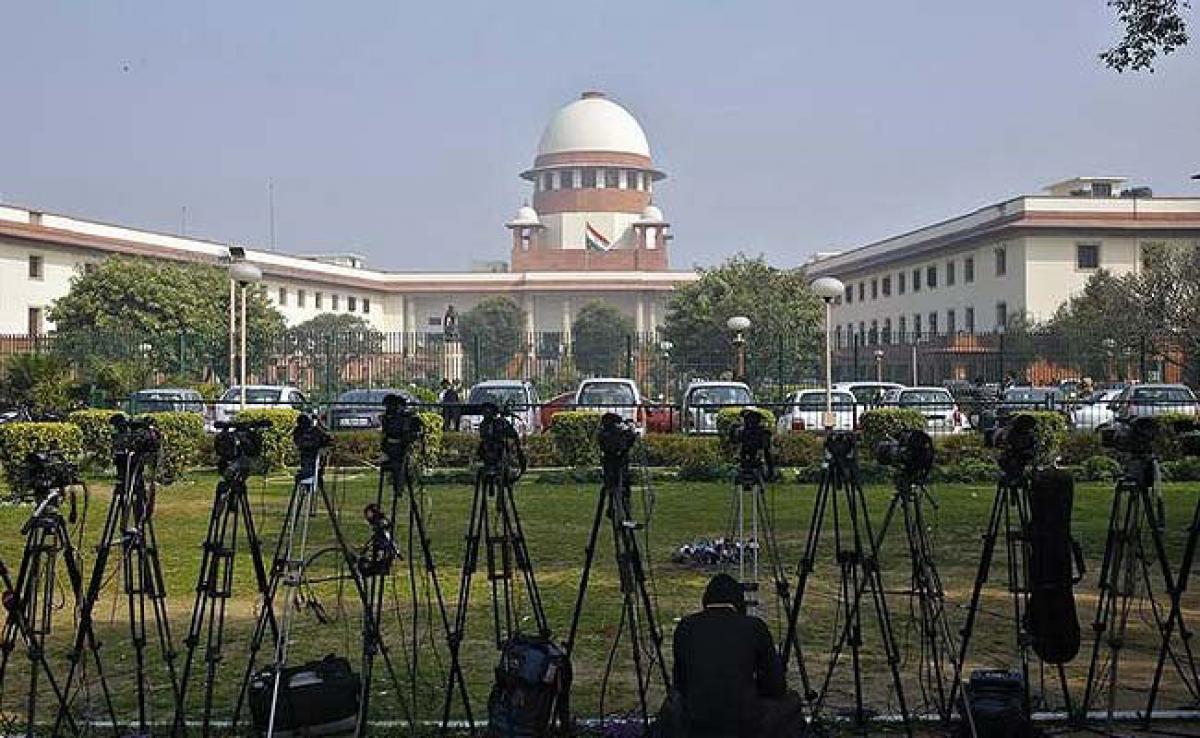Live
- India squad for ICC Champions Trophy announced
- Every disaster a lesson, says NDRF DG
- STT Global to invest Rs 3,500 crore in TG
- Pawan Kalyan calls for public participation in Swachh Andhra
- TGCHE, APSCHE explore collaborations
- Flamingo fest off to a flying start
- PM distributes 65 lakh Svamitva property cards
- CCTV cams, new tech can rein in bank robberies, thefts: Rachakonda top cop
- DGP rolls out innovative concept to shore up policing
- ACB grills Greenko arm reps in Formula E Car Race case
Just In

They also contended that they had stopped manufacturing BS-III vehicles.
The Supreme Court has asked automobile companies not to frustrate the government's initiative to check increasing levels of pollution by selling BS-III vehicles which they are holding in stock. The Supreme Court, which was hearing pleas of automobile manufacturers seeking permission for disposing of around 8.2 lakh BS-III vehicles which are being held in stock, indicated that either it will ban registration of such vehicles or impose costs to compensate for the health hazards created by pollution.
"The Centre had spent thousands of crores of rupees to upgrade technology to produce BS-IV fuel and the companies could not be allowed to frustrate the government's initiative to check increasing pollution levels by selling around 8.2 lakh BS-III vehicles which they are holding in stock," a bench of Justices Madan B Lokur and Deepak Gupta said.
The court will take up the matter again today.
The automobile companies have approached the Supreme Court to dispose of their stock as the Bharat Stage IV (BS-IV) emission norms are to come into force from April 1. During the hearing, the bench said three options were available before it.
These were either taking a drastic step to ban registration of BS-III vehicles or allow their registration but ban plying of such vehicles in major cities or ask the companies to pay costs for creating health hazards and reimburse the Centre which spent enormous money in upgrading fuel standard.
The amicus curiae or impartial adviser assisting the court in the matter, urged the bench to ban the manufacture and sale of BS-III vehicles as the Centre had spent around Rs. 18,000 to 20,000 crore for producing cleaner fuel.
Society of Indian Automobile Manufacturers (SIAM) had submitted data on manufacturing and sale of BS-III vehicles on a monthly basis from January 2016 and told the court that the companies were holding stock of around 8.24 lakh such vehicles including 96,000 commercial vehicles, over six lakh two-wheelers and around 40,000 three-wheelers.
The manufacturers told the court that they were allowed to sell their stocks with old emission norms when new technology was brought in force on the previous two occasions at the time the industry had switched to BS-II and BS-III in 2005 and 2010.
They also contended that they had stopped manufacturing BS-III vehicles.

© 2025 Hyderabad Media House Limited/The Hans India. All rights reserved. Powered by hocalwire.com







